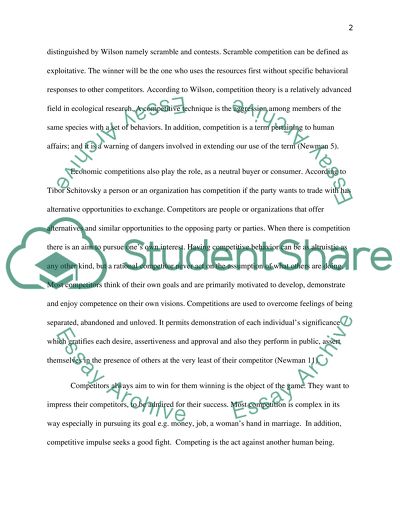Cite this document
(“Concept of Competition Essay Example | Topics and Well Written Essays - 1250 words”, n.d.)
Retrieved from https://studentshare.org/english/1446086-concept-of-competition
Retrieved from https://studentshare.org/english/1446086-concept-of-competition
(Concept of Competition Essay Example | Topics and Well Written Essays - 1250 Words)
https://studentshare.org/english/1446086-concept-of-competition.
https://studentshare.org/english/1446086-concept-of-competition.
“Concept of Competition Essay Example | Topics and Well Written Essays - 1250 Words”, n.d. https://studentshare.org/english/1446086-concept-of-competition.


